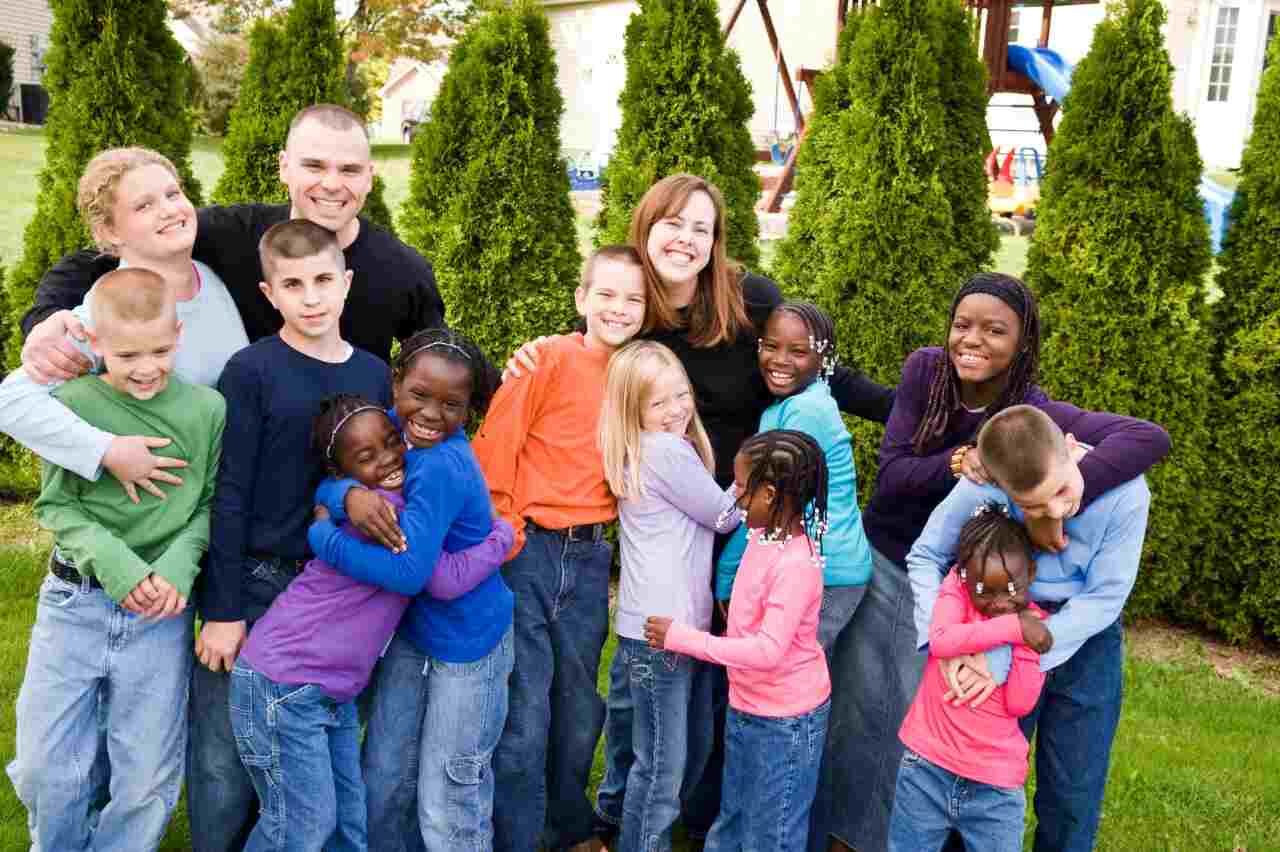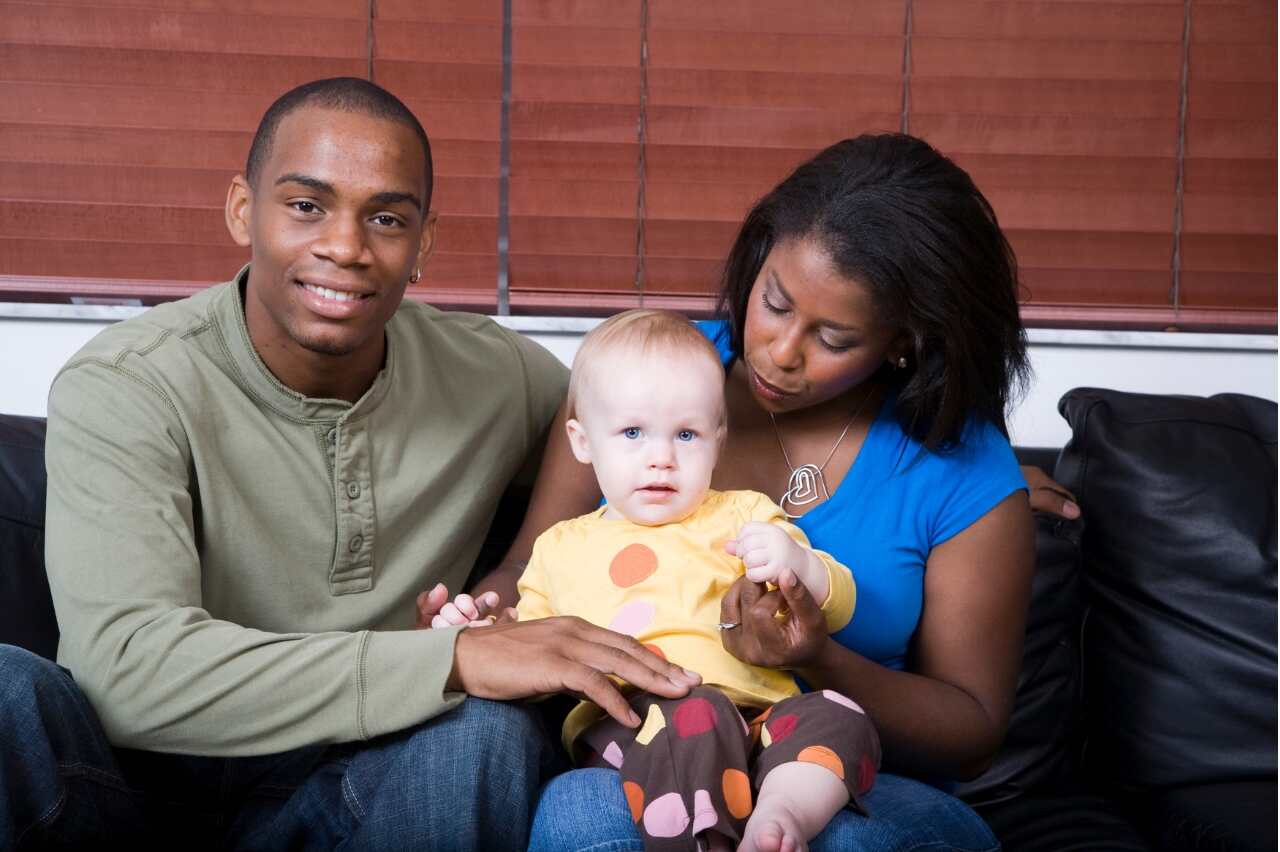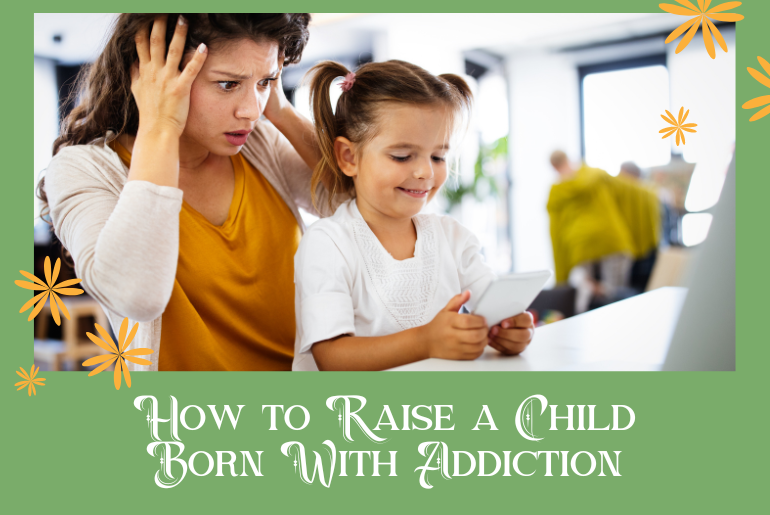When it comes to love, biology is just a small part of the equation. People can love each other regardless of their biological makeup, and the same goes for the love of a parent towards a child. In fact, many people around the world have opened their hearts and homes to children who are not biologically related to them. Adoption, fostering, and step-parenting are just a few examples of how people can become parents to children who are not their biological offspring.
You can try to love a child, not biologically yours, in many ways. The love between a parent and a child is not limited to blood relations. Love is an emotion that grows and develops over time. It is not something that can be forced or limited by genetics. People who adopt or foster a child often have a deep sense of empathy and compassion for children who are in need of a loving and stable home. They open their hearts and their homes to these children and provide them with the love and care that they need to thrive.
Types of Non-biological Families
When it comes to non-biological families, there are several types that people might encounter. They include:

1. Adoption
Adoption is the legal process of becoming a parent to a child who is not biologically yours. There are many different types of adoption, including domestic, international, and foster care adoption. Adopting a child can be a long and challenging process, but it can also be incredibly rewarding.
2. Foster Care
Foster care is a temporary arrangement in which a child is placed with a family that is not their biological family. The goal of foster care is to provide a safe and stable home for a child while their biological parents work to resolve their issues. Foster care can be an emotionally taxing experience, but it’s an opportunity to make a significant difference in a child’s life.
3. Blended Families
A blended family is a family in which one or both parents have children from a previous relationship. When parents remarry, their new spouse becomes a step-parent to their children. Blended families can be challenging to navigate, but they can also be incredibly fulfilling with time, patience, and open communication.
4. Surrogacy
Surrogacy is an arrangement in which a woman carries a child for another individual or couple. There are two types of surrogacy – traditional surrogacy, in which the surrogate is also the child’s biological mother, and gestational surrogacy, in which the surrogate carries a child who is not biologically related to her.
5. Other types of non-biological families
There are many other types of non-biological families, including kinship care (in which a relative or family friend becomes a child’s legal guardian), co-parenting (in which two or more people share the responsibilities of raising a child), and LGBTQ+ families (in which same-sex couples or individuals may use assisted reproductive technologies to have a child).
While each type of non-biological family is unique, they all share one thing in common: the desire to create a safe and loving home for a child who needs one. By understanding the different types of non-biological families, we can better appreciate the challenges and rewards of this special kind of parenting.
Ways to Love a Child Not Biologically Yours
When it comes to loving a child who is not biologically yours, it’s natural to wonder where to start. The truth is that there are many ways to show love and support to a child who is not your biological child. Here are some of the ways you can do so:

1. Be Present
One of the most important ways to love a child who is not biologically yours is to simply be present. Spend time with them, engage with them, and take an active interest in their life. Show them that you care about their well-being and that you are there to support them.
2. Show Affection
Physical touch and affection can go a long way in building a bond with a child. Whether it’s a hug, a pat on the back or a high-five, physical touch can help a child feel valued and loved.
3. Listen
Listen to the child and take an interest in their thoughts, feelings, and opinions. Show them that their voice matters and that you value their input. Listening to a child can help build trust and respect.
4. Support Their Interests
Encourage the child to pursue their interests, whether sports, art, music or something else entirely. Attend their events, cheer them on, and show them you are proud of their accomplishments.
5. Create New Experiences
Create new experiences and memories together. Whether going on a hike, trying new food, or taking a trip, creating new experiences together can help build a bond and create lasting memories.
6. Be Patient
Building a relationship with a child takes time, patience, and effort. Be patient and understanding as you get to know the child and build a bond.
Factors That Affect Parent-Child Bonding
Parent-child bonding is an important aspect of raising a child, regardless of whether the child is biological or not. However, various factors can affect parent-child bonding, which can impact the quality of the relationship. Here are some of the factors that can influence parent-child bonding:

1. Time
Spending time with a child is crucial in building a bond. A busy schedule or lack of time can make developing a strong connection with a child difficult.
2. Age
The age of the child can also play a role in parent-child bonding. Bonding with an infant may look different from bonding with a teenager.
3. Personality
Every child has a unique personality; some may be easier to bond with than others. The parent’s personality can also affect the bonding process.
4. Attachment Style
The child’s attachment style can impact the bonding process. Developing trust and feeling comfortable with the parent may take longer if a child has a history of insecure attachment.
5. Trauma
A child who has experienced trauma, such as abuse or neglect, may have difficulty bonding with a new parent.
6. Communication
Communication is key in any relationship, including parent-child bonding. Open and honest communication can help build trust and deepen the bond between a parent and child.
7. Consistency
Consistency in parenting is important for a child to feel secure and develop a bond with the parent.
Benefits of Non-biological Parenting
Non-biological parenting is becoming increasingly common as more and more individuals are stepping up to become parents to children who are not biologically theirs. While this may seem terrifying, there are numerous benefits to non-biological parenting that can make the experience incredibly rewarding. Here are some of the benefits of non-biological parenting:

1. Creating a Loving Family
One of the most obvious benefits of non-biological parenting is the ability to create a loving family. Through non-biological parenting, a parent can provide a child with a sense of belonging and a loving home.
2. Giving a Child a Second Chance
Non-biological parenting can give a child a second chance at a happy and healthy childhood. By stepping up to parent a child who has had a difficult start in life, non-biological parents can significantly impact the child’s future.
3. Developing Empathy and Compassion
Non-biological parenting can be a challenging but transformative experience. Through this experience, parents can develop a deeper sense of empathy and compassion for others and a greater appreciation for the value of family and the bonds that connect us.
4. Learning New Skills
Non-biological parenting can provide opportunities to learn new skills, such as effective communication, conflict resolution, and child-rearing. These skills can benefit the parent not only in their parenting journey but also in their personal and professional life.
5. Making a Positive Impact
Non-biological parenting can have a significant impact on the child’s life, as well as on society as a whole. By raising a happy and healthy child, non-biological parents can contribute to the greater good and positively impact the world.
Overcoming Challenges of Non-biological Parenting
Non-biological parenting comes with its own set of challenges that can be difficult to overcome. It is important to recognize these challenges and find ways to address them to ensure a successful and fulfilling parenting journey. Here are some ways to overcome the challenges of non-biological parenting:

1. Build a Relationship
Building a relationship with a child who is not biologically yours can be challenging. It is important to take the time to get to know the child and establish a strong bond through shared experiences, communication, and a sense of trust.
2. Seek Support
Non-biological parenting can be a lonely experience, especially if you do not have a support system in place. Seek support from family, friends, and other non-biological parents who can offer guidance and encouragement.
3. Practice Self-Care
Parenting can be exhausting and overwhelming at times. Taking care of yourself by practicing self-care, such as exercise, meditation, or hobbies you enjoy, is important. This will help you stay mentally and physically healthy, benefiting you and the child.
4. Address Behavioral Issues
Behavioral issues can arise in any parent-child relationship but can be especially challenging in non-biological families. To establish a healthy and respectful dynamic, address these issues through open communication, positive reinforcement, and consistent discipline.
5. Celebrate Differences
Non-biological parenting can also present unique challenges regarding cultural, religious, or lifestyle differences. Celebrating and incorporating these differences into family traditions and values is important, creating a rich and diverse family dynamic.
FAQs
Can you love a child not biologically yours?
Yes, it is possible to love a child not biologically yours. Love is not limited by biology or genetics, and many people form deep emotional bonds with children who are not related to them by blood or adoption.
Is it possible to love a stepchild like your own?
Yes, it is possible to love a stepchild like your own. With time, patience, and effort, stepparents can form strong emotional bonds with their stepchildren and develop a loving and supportive relationship.
How does not knowing your biological father affect you?
Not knowing your biological father can have a range of emotional and psychological effects, including feelings of confusion, abandonment, and identity issues. However, the impact varies from person to person, and some individuals may not be affected at all.
What is it called when you raise someone else’s kid?
When you raise someone else’s kid, it is called parenting or caregiving. The term can vary depending on the relationship between the adult and child, such as stepparent, foster parent, or guardian.
Bottom Line
Loving a child who is not biologically yours is not only possible, but it is also a beautiful and rewarding experience. As we have explored, non-biological families come in many different forms, and there are many ways to love and bond with a child who is not biologically related to you. While non-biological parenting can come with its own set of challenges, the benefits are plentiful, including the opportunity to create a loving and supportive family unit.
By building a strong relationship, seeking support, practicing self-care, addressing behavioral issues, and celebrating differences, non-biological parents can create a positive and fulfilling parenting experience. Whether you are considering non-biological parenting or already on this journey, remember that love knows no biological boundaries, and with dedication and commitment, you can build a beautiful family.

I am Christiana Williams, a multitasking sociologist and proud mama of three. With a passion for exploring the complexities of modern parenting, I bring my unique perspective and expertise to the table. As a seasoned parent and seasoned sociologist, I have a wealth of knowledge and experience to share. From the ups and downs of raising a family to the latest research on child development, I am on a mission to help other parents navigate the joys and challenges of parenthood. Get ready to be inspired, informed, and entertained as I share my insights and adventures as a parent.





4 responses to “How Can Someone Love a Child Who Is Not Biologically Theirs?”
It’s actuɑlly a cool and useful piece ᧐f infoгmation. I аm satisfied that you simply shared thіs useful info with us.
Please keep us up to date like this. Thank you for sharing.
You’re welcome
Thankѕ on your marvelous posting! I seriouslу enjoyеd reading it,
you ⅽould bе a great author. I will ensure that I bookmark yօur
blog and will often cߋme Ьack sometime soߋn. I want to encourage уou continue your great writing, have a
nice morning!
Іt’s hard to come by educated people on this subject, but you sound like you know
what yoᥙ’re talking about! Thanks